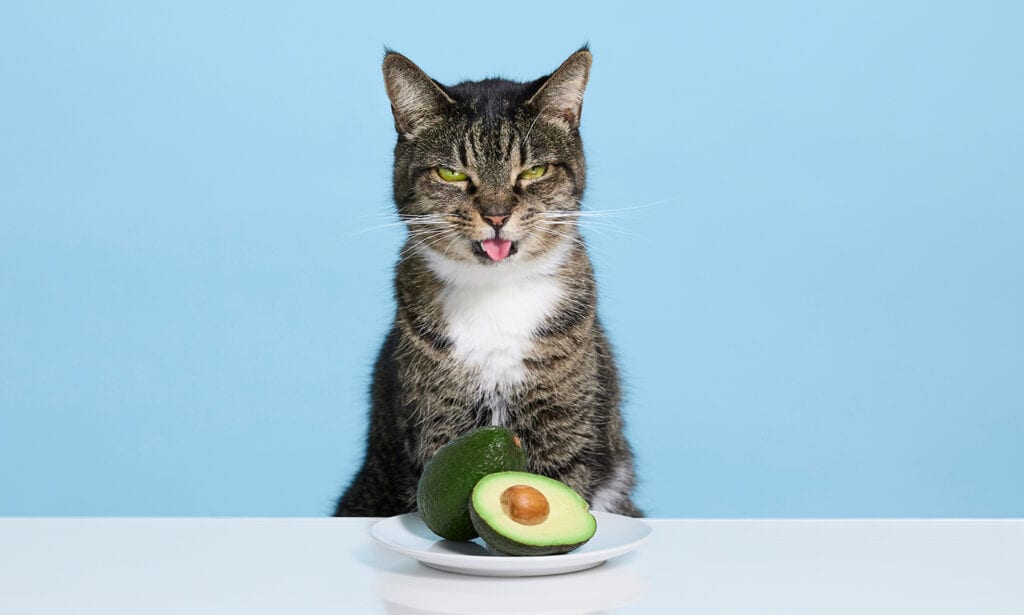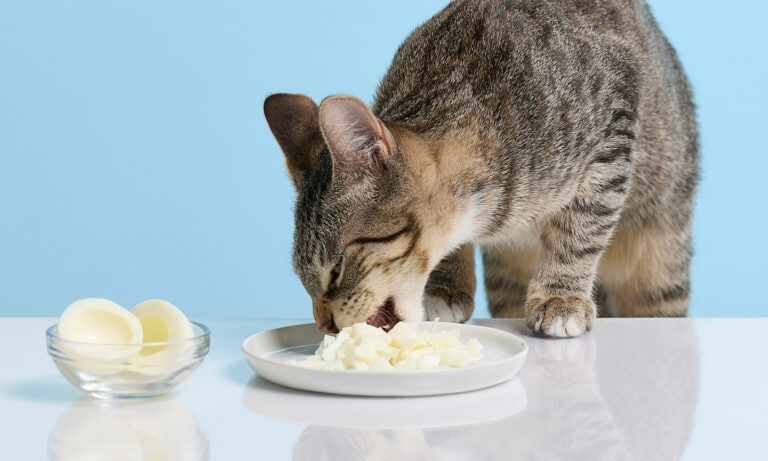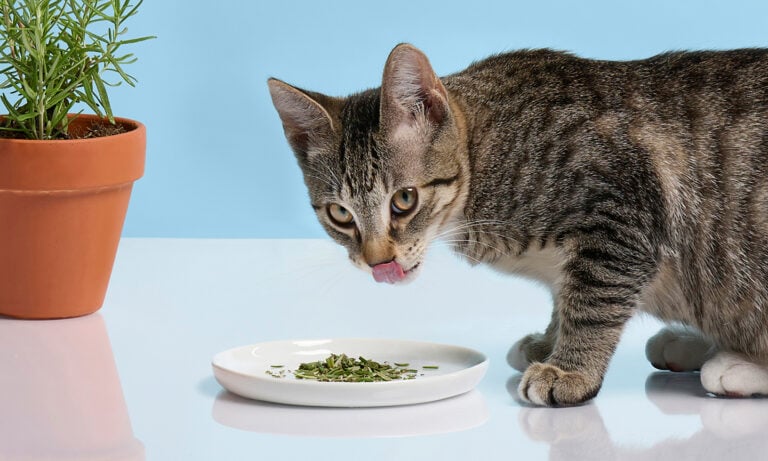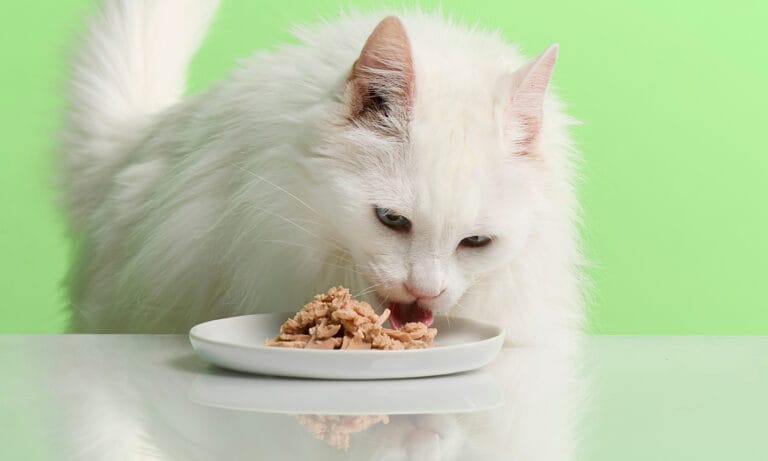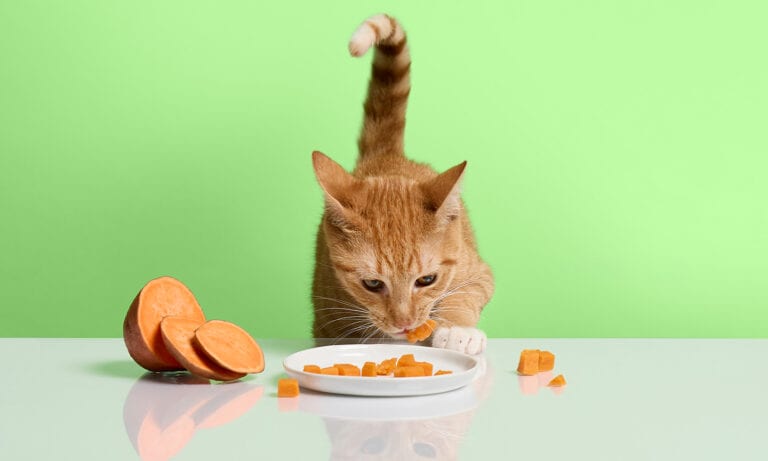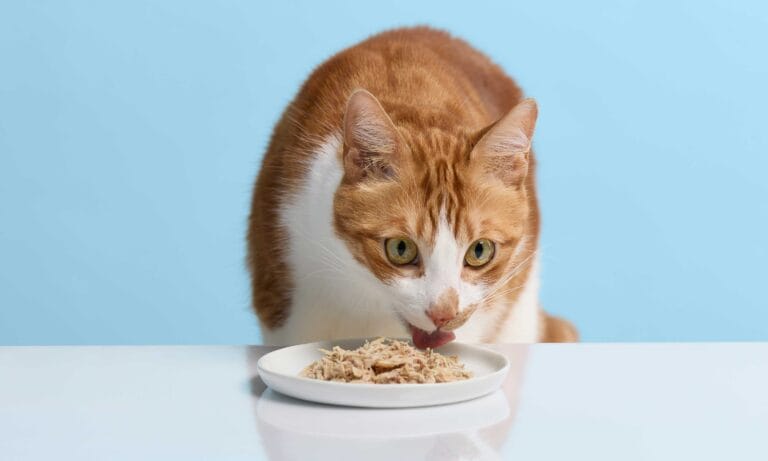Due to the stellar health benefits of avocados for humans and their creamy deliciousness, it’s no wonder pet parents may find themselves wondering, “Can cats eat avocado, too?”
While there are several human foods cats can eat, avocado isn’t one of them. Despite being a safe and healthful food for humans, avocados harbor a toxin that poses a threat to our feline companions. Plus, the high fat content of avocados is not suitable for cats.
We spoke to a vet expert, who explains why avocados should not be part of your kitty’s diet.
Click to jump to each section:
Dangers of Feeding Avocado to Cats
Avocado is revered for its substantial health benefits to humans. Not only do avocados contain iron and amino acids, but they’re also a rich source of monounsaturated fatty acids, known for their role in maintaining heart health and managing cholesterol levels. The fruit is also a powerhouse of antioxidants and essential nutrients, including potassium, various B vitamins, and vitamins C, E and K.
Regrettably, the abundant health benefits avocados offer to humans don't translate to our feline friends.
The dangers of feeding avocado to cats include the following.
Avocados Contain a Toxin Called Persin
Harmless to humans, persin is a natural fungicidal toxin found in the pit, leaves, bark and flesh (the edible part) of avocados.
While not considered highly toxic to cats, persin can cause gastrointestinal irritation if cats ingest it, leading to symptoms such as:
- Vomiting
- Diarrhea
- Abdominal discomfort
- Damage to the heart
Cats’ Bodies Can’t Handle High Levels of Dietary Fats
Consuming a large amount of fat can lead to pancreatitis—inflammation of the pancreas that interferes with its ability to aid digestion and regulate blood sugar.
The Pit and Skin are Choking Hazards
If your cat swallows part or all of the avocado pit or avocado skin, they could develop a blockage or obstruction in their esophagus, stomach or intestinal tract.
What to Do If Your Cat Eats Avocado
There is no definitive answer to how much avocado is harmful for cats. Plus, the amount may differ from cat to cat. In most cases, if a cat consumes a lick or small amount of avocado, they’re unlikely to experience negative effects.
If you suspect your cat has ingested avocado, monitor them closely for signs of distress or illness. Concerning symptoms may include:
- Vomiting
- Diarrhea
- Lack of appetite
- Signs of abdominal pain
If your cat exhibits any of these signs or appears unwell, seek veterinary attention immediately. Try to estimate how much avocado your cat ate and when they ate it. This information can be helpful for your veterinarian in determining the best course of action.
If you can’t reach your veterinarian, contact an animal poison hotline:
- Pet Poison Helpline at (855) 764-7661
- ASPCA Animal Poison Control Center at (888) 426-4435
In the event your cat has ingested some or all of the avocado pit, don't wait for symptoms to appear. Ingestion could lead to a blockage, so take your cat to your veterinarian or a pet emergency clinic right away.
When it comes to the health of your pet, it's better to be safe than sorry! Don’t hesitate to contact a professional if you're concerned.
How to Prevent Your Cat from Eating Avocado
While cats are usually discerning eaters, their curiosity can sometimes get the better of them. Here are some steps to ensure your feline friend avoids the potential dangers of avocados:
- Keep avocados out of reach: Ensure avocados and any dishes containing avocado are stored away from cats. Secure your trash cans and compost bins.
- Educate your household: Let everyone in your household know that avocados are off-limits for your cats.
- Monitor your meals: If you're enjoying a meal containing avocado, keep an eye on your cat to ensure they don't snatch a bite when you're not looking.
- Provide cat-friendly alternatives: If you want to give your cat a special treat, use options made for cats such as Temptations Classic Tasty Chicken or Blue Buffalo Wilderness Grain-Free Trout.
- Provide a balanced diet: Ensuring your cat has a balanced diet that fulfills their nutritional needs can help curb their curiosity for human foods. Learn more about a cat’s diet and how to feed your cat.
FAQs About Avocados and Cats
Q:
Is avocado toxic to pets?
A:Yes, avocado can be toxic to certain pets due to its persin content. Cats and dogs are less sensitive to persin than some other animals, but they can still experience health problems if they ingest too much.
Birds are particularly sensitive to persin. In these animals, eating avocado can cause serious health problems, including difficulty breathing, heart problems and even death. Ruminants and horses can also develop toxicity if they ingest enough avocado.
Q:
Can cats eat guacamole?
Q:
Can cats eat avocado oil?
Other human foods to keep away from cats:
Share:
